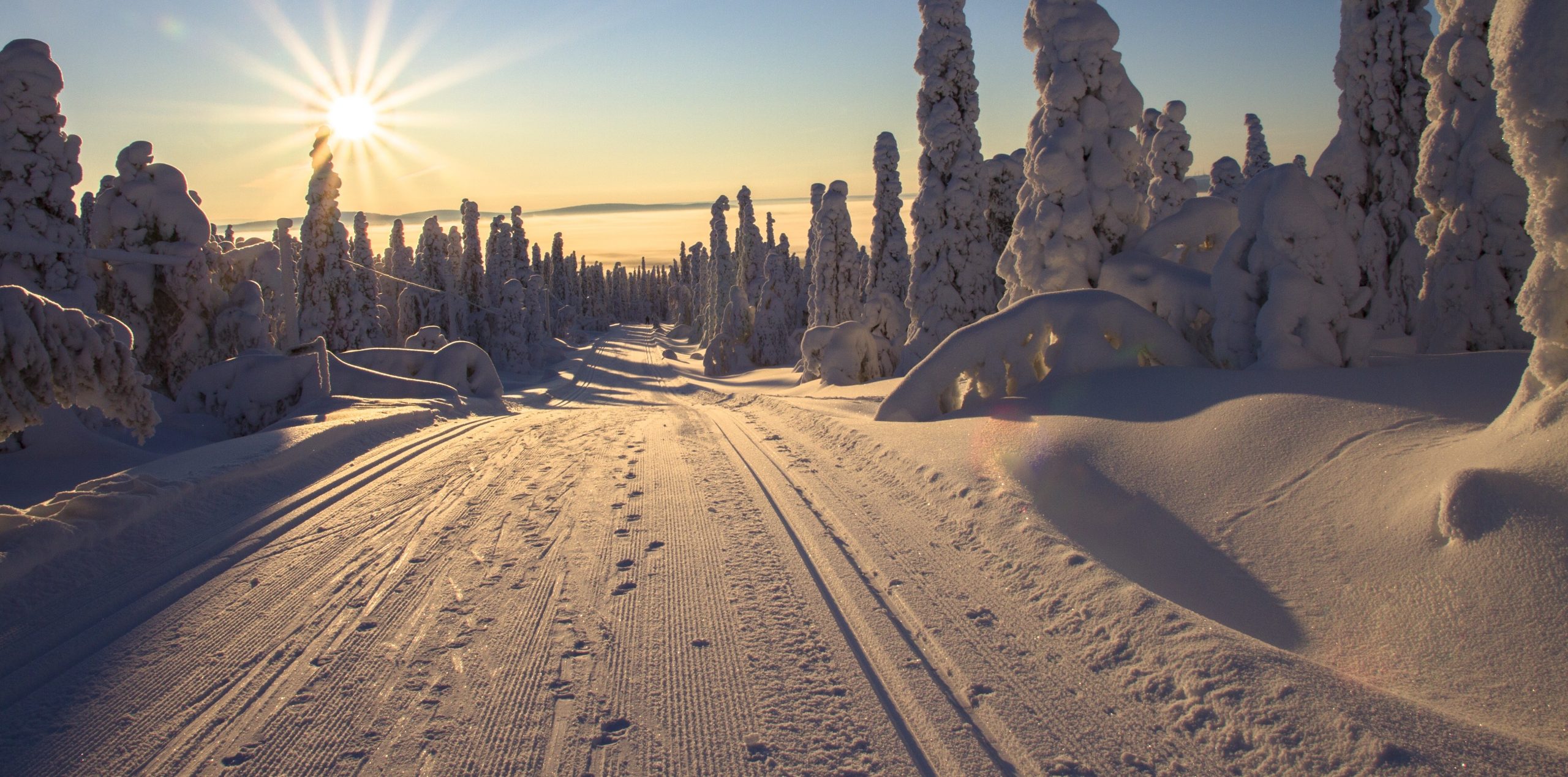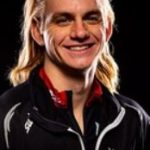It comes in a lot of forms. “So, what do you do with all your time now?” “Are you coming back next year?” “Do you miss it?” It comes in many forms, but always the underlying question is there: “So…who are you now?”
I was a Nordic ski racer for ten years, starting in the sixth grade on a rented pair of combi skis with no idea the of difference between V1 and V2 and even less idea what it meant to “get my hips forward.” By the end of my sophomore year of high school, I knew that I wanted to ski in college, and though my results at the time were not in agreement with that concept, two years of high school competition and one gap-year later, I was putting on a jacket that read “Bates Nordic Skiing” for the first time. Just like that.
I always skied with a massive chip on my shoulder, especially during my time in college. Many of my teammates had been to junior nationals, Regional or even National Elite Group camps and had extensive resumes at the junior level of racing. I had never even qualified for Junior Nationals, let alone achieved All-American status, and to me, everyday was a fight to prove that I belonged. Maybe I never had the natural talent of my peers but that just convinced me that I needed to work harder. Even if I couldn’t win the genetics game, I could win the effort game, I could still win. And I did. I worked as hard as I possibly could; I upped my hours, I added workouts in the morning before class, I watched my diet as closely as I could, trying to get only what I needed. I logged every hour of training, except for those workouts that I deemed “too short” to really qualify (basically anything under 30 minutes) and strove to hit or exceed my scheduled time each week. I trained, studied, ate and slept for two years.
But despite all the work, all the attention to detail and all the attempts at perfection, the results never came. Particularly during my sophomore season, I finished between 58th and 68th in every race I skied that winter, remarkably consistent, if far outside of my preseason expectations. The last race of that season was a 20-kilometer classic mass start, hosted by Bates at Black Mountain in Rumford, Maine. It was quite possibly the worst race of my ten-year career. I was dropped almost immediately, felt absolutely leaden and exhausted from the outset and could not seem to catch my breath at any point. By the 10-kilometer mark I was seriously considering dropping out, and as I skied past my coach, cheering on the sideline, I screamed to her “What the F**k is wrong with me!” She gave me two quite words, much in contrast to her usual exuberant self out on course, that kept me in that race: “You’re OK.”
I finished that race and that season numb. I felt useless, helpless and totally undeserving of a place on that team. I felt as though I had let down my coaches, my teammates and everyone else who believed in me and as though I deserved respect from none of them. After years of striving to prove the world wrong, to prove that I deserved a place as an elite collegiate athlete, the world seemed to be telling me that I didn’t deserve to be there after all. Even so, I tried to brush it off as just a bad season, telling myself that these feelings would fade, and I would be ready to do it again after a month off from training full time. I got a blood test done to see if my iron was low; it wasn’t and if anything, that just made me feel even worse. There was no silver bullet to fix my performance problems; maybe I just sucked after all. When training rolled around in May, I had trouble motivating myself to get out the door. The spark that had filled my workouts for so many years just wasn’t there anymore. I wasn’t skiing badly; I just found no joy in what I was doing anymore. Good workouts felt…fine. Bad workouts felt…fine. After over almost four months of deliberation I finally made the decision to step away from competitive skiing for the first time in a decade.
I made the formal announcement to the team, in person, during the first week of school. Then I took a full month totally away from the team, trying to explore the new opportunities that were opened up to me, but something always felt just a little bit wrong. I was struggling to find a new sense of purpose, a new drive like I had when I was skiing. Ironically, while I largely left behind the performance based disordered eating habits that I had developed while racing, I found new issues with food in retirement. It seemed to me that if I hadn’t exercised or hadn’t exercised enough, then I didn’t need to or didn’t deserve to eat. I may have had freedom, but I also felt like I needed to distance myself from the sport, and athletics in general, even if I missed them because everyone told me to “explore new opportunities.” And always, there were the questions. “What do you do with all your free time?” “Is it nice to have so much more time now?” “Are you more productive?” And possibly the most prevalent of all, “Do you miss it?”
The answers to these questions are difficult. I have done a lot in the four months since I decided to stop competing. I did take advantage of a lot of new opportunities, athletic and otherwise. I started seeing a psychologist and we have done a lot of work along the lines of how to construct a new identity that is not rooted in being an athlete first. She also gave me an important insight into the process: “You spent the last ten years constructing an identity as a ski racer; you’re not going to create a totally new identity for yourself in three months and you don’t need to.” That little statement brought with it a great sense of relief to me. It was totally okay for me to question things, to feel a little lost and to wonder how the pieces were going to fit together in the next phase of my life. So yes, I miss it. I also don’t. I miss the good parts, the days when everything came together on the course, the beautiful distance cruises in the fall and winter, the wonderful people that I met and got to engage with on a daily basis. I don’t miss the mental health issues I faced throughout my career; the binding of my identity and value with my performance, the disordered eating habits, the feelings of frustration and worthlessness that came with my bad races. I don’t miss the fluctuations in energy levels that had me almost falling asleep in 9:30 am classes or unable to fall asleep at 2:00 am or waking up every few hours during the night. Now I’m happy that I can sleep through the night most of the time, eat dessert without feeling ashamed or as though I’m letting myself or my teammates down and enjoy being active for its own sake. Quite simply, I’m happy that I can be happy.
Another question I commonly get asked is whether or not I’m coming back next year, whether this is a year off or if it is full retirement. The honest answer is I don’t know. I am currently working with the Bates Ski Team part time as a kind of coach and mentor and am very happy in that role. Taking time away from the team and the sport impressed on me that while I needed to step back from competition for mental and physical health reasons, I still loved the sport and still wanted to be involved; this was a kind of compromise that allowed me to work with the team and contribute to the growth and development of the athletes without the pressures and risks that I had been dealing with as an athlete myself. Generally speaking, I am trying to rehab this like I would any other injury, it just happens to be primarily mental, not physical. If, as I continue to move forward, I feel the desire to try to come back to racing again, then maybe I will. If I feel as though that is not the direction to go in, so be it; I know that there is a world out there of other opportunities. I came back to working part-time with the team because I wanted to not because I felt like I was supposed to. I liked doing it, so I found a way to. It’s okay to miss your sport and it’s okay to not; what is important is giving yourself the chance to figure that out for yourself and to realize that there is a massive network of people and communities that are all willing to help you along in that process. So, to everyone asking me these tough questions, I’ll give you the least satisfying answer possible: I don’t really know. But I’m happy to say that I’m looking forward to figuring out the answers to some of them with you along the way.


